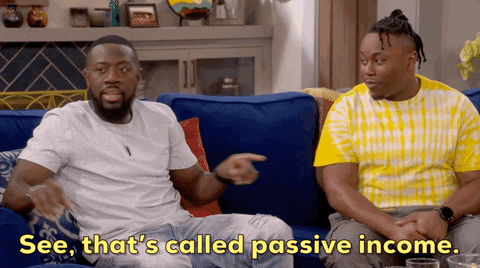5.4 KiB
| description |
|---|
| Learn the fundamentals of The Way of Data Farming 🧑🏫 |
Data Farming 101

Meet your sensei.
What is Data Farming?
Data Farming (DF) is Ocean Protocol's incentive system that rewards participants for creating value in the Ocean ecosystem.
Participants are able to receive rewards passively, actively, or both weekly by engaging in a variety of streams that helps the protocol grow. These activities include holding veOCEAN, curating datasets and building prediction models.
Passive and Active Reward streams
Every week OCEAN rewards are paid out to Data Farmers through two different reward streams. Passive Rewards and Active Rewards.
These two reward streams produce different variable APYs.
Splitting the Pie
Each Data Farming weekly round has a pool of OCEAN rewards, where 50% of the pool is paid out in the form of passive rewards & 50% in the form of active rewards.
| Passive Rewards | Active Rewards |
|---|---|
| 50% | 50% |
What are Passive Rewards?
Passive rewards are the OCEAN rewards paid to Data Farmers just for locking their OCEAN tokens.

<<<<<<< HEAD To start getting passive rewards, go here.
To start getting passive rewards, go here.
issue-1218-add-challenge-df-info
What are Active Rewards and Substreams?
Active Rewards are OCEAN rewards paid to contributors actively working to improve Ocean Protocol.
There are are two substreams available in Active Rewards:
- Volume DF
- Challenge DF
Volume DF rewards Data Farmers that allocate their veOCEAN tokens to Ocean ecosystem assets. It's called Volume DF because the amount of rewards relies on assets that are actively generating Data Consume Volume. Therefore, Volume DF yields depend on the sales produced by these assets and allocations made. No sales = no rewards, so choose your favorite datasets wisely & then allocate. Always DYOR.
Challenge DF rewards Data Scientists that produce prediction models that consistently improve the prediction of the price of Ethereum. It's called Challenge DF because weekly rewards are dispensed towards participants that are competing to improve the accuracy of how well we can predict price movements of Ethereum. Therefore, Challenge DF yields depend on participants accurately outcompeting each other. Only the top 3 predictions on the leaderboard win.
Active Rewards are governed and defined by the Reward Function.
<<<<<<< HEAD To start getting Active Rewards, go here.
To start getting Active Rewards, go here.
issue-1218-add-challenge-df-info
Estimating APY
Each Data Farming weekly round has a pool of OCEAN rewards and can be viewed here

Rewards Page overview for each stream.
Reward Streams
50% of the pool is paid out in the form of Passive Rewards.
50% of the pool is paid out in the form of Active Rewards.
| Passive Rewards | Active Rewards |
|---|---|
| 50% | 50% |
Reward Sub-Streams
Active Rewards is then composed of two sub-streams.
- 5,000 OCEAN is paid out to Challenge DF.
- The remainder is paid out to Volume DF.
| Challenge DF | Volume DF |
|---|---|
| 5,000 OCEAN | Remaining OCEAN |
What's the difference between Data Farming and Yield Farming?
If you are familiar with 'liquidity mining' then you will find Data Farming similar, but instead, tuned for the curation of high quality assets in the Ocean ecosystem.
Unlike yield farming in DeFi, data farming has real intrinsic utility for Ocean Protocol stakeholders as Data Farmers determine which are the highest quality assets in the Ocean ecosystem to purchase, and as these assets sell, they are rewarded in OCEAN . It's this curation of the "best" assets in the Ocean ecosystem that shortens the search times for those looking to shop for assets in the Ocean ecosystem.
To deepen this incentive, Publishers are boosted further and gain 2x the allocation power when pointing to their own assets.
What are Publisher Rewards?

Publishing lets you earn *more* OCEAN rewards
Data Farming strongly incentivizes publishing assets in the Ocean ecosystem by doubling the allocation power of Data Farmers that support their own published assets.
How is it calculated? All the veOCEAN a Data Farmer has allocated to an asset they’ve published is effectively doubled for the rewards calculation.
You can read more about the implementation in this blog post.